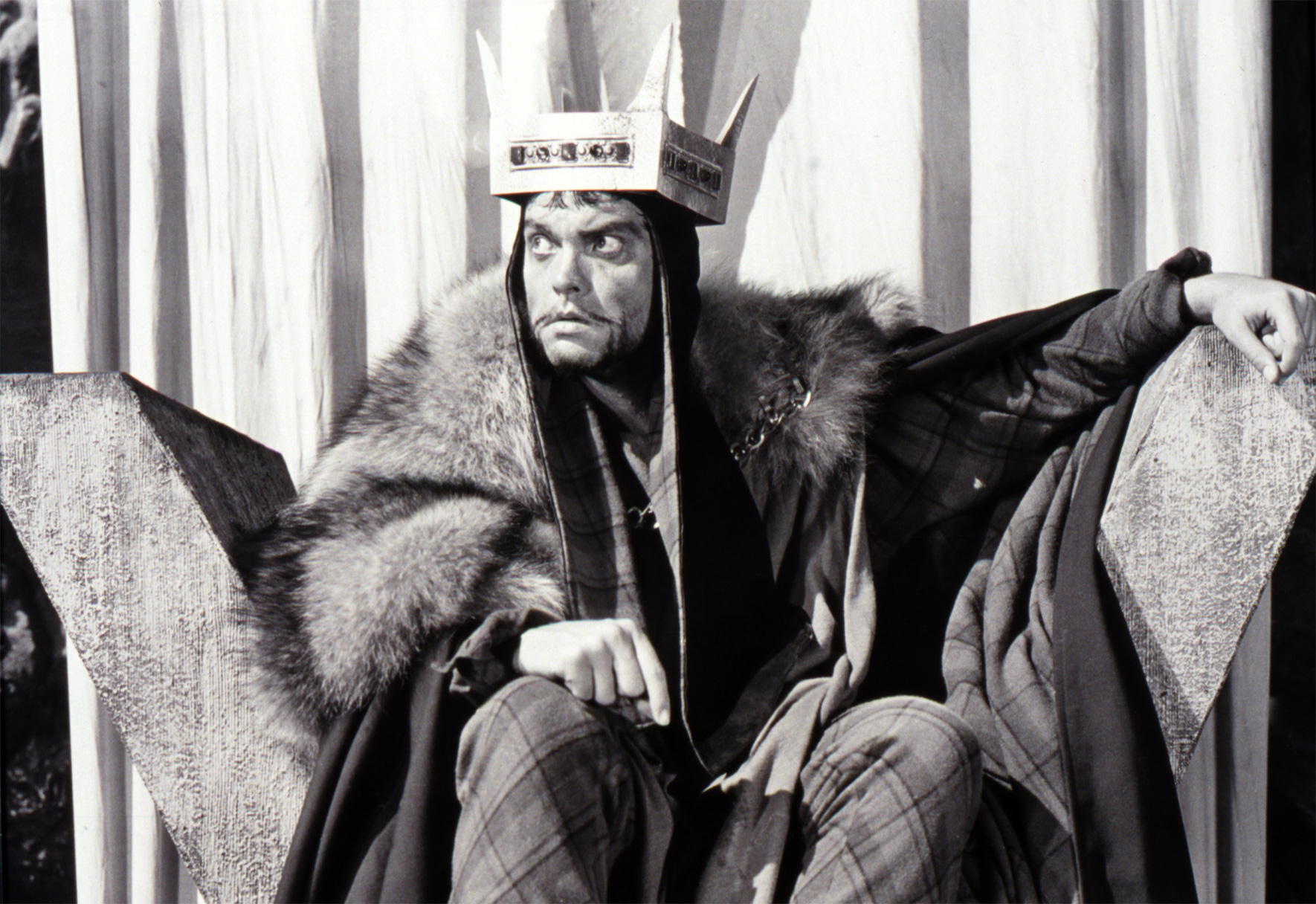
Welles implies frankly in a spoken foreword to the film that his is a study of the tensions, the political conflicts and the religious troubles of an ancient time. The passion and torment of the conflict between these two which resides in the play has been rather seriously neglected in this truncated rendering.But then Mr. Likewise, her influence upon Macbeth, while fleetingly suggested in a few taut lines and etched in a couple of hot embraces, is not developed adequately. The Lady Macbeth of Jeanette Nolan is a pop-eyed and haggard dame whose driving determination is as vagrant as the highlights on her face. Except that he offers the suggestion that this fatally ambitious man took rather heavily to drinking in the later phases of his bloody career, he accomplishes no illumination of the classical character.And speaking of illumination, there is precious little of it in this film, either in the way of mere set lighting or in revelation of character. Also he uses heavy make-up to darken and crease his countenance so that his Macbeth, much given to pondering, has a monstrous quality. Welles favor the pointing of the camera at himself from all sorts of distorting angles and in close-ups that make his face bulk large. Welles deploys himself and his actors so that they move and strike the attitudes of tortured grotesques and half-mad zealots in a Black Mass or an ancient ritual.Especially does Mr. On weird sets, concocted by Fred Ritter, which cause the castle of Dunsinane to look less like a Scottish castle than like some sort of chasm or cave and the blasted heath of the witches to look like a bath of live steam, Mr. Welles directed and in which he stars, may not possess the searching insight and the dramatic clarity that one might desire but it has a great deal in its favor in the way of feudal spectacle and nightmare mood.In the established Welles tradition, which has been building for a number of years, the theatrical mechanics of the medium are permitted to dominate the play and Shakespeare is forced to lower billing than either the director, the star or the cameraman. As a matter of fact, this final rendering, which Mr.

Orson Welles' sprotean film production of William Shakespeare's "Macbeth," cut, re-cut, re-recorded and oft exhibited far and wide in the past three years, finally obtained a local haven at the Trans-Lux Sixtieth Street yesterday and turned out to be less of a vagary than its history might lead one to expect.


 0 kommentar(er)
0 kommentar(er)
